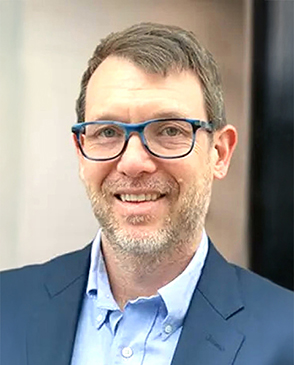In memoriam: Jeffrey Cameron
Jeffrey Cameron, an associate professor of biochemistry at the University of Colorado Boulder, passed away on September 25 at the age of 43 in Colorado. He made seminal contributions to understanding microbe cellular processes.

Born on February 16, 1981, in La Grange, Illinois, Cameron studied plant science at Montana State University and Washington University, where he obtained his Ph.D. and completed his postdoctoral training.
In 2015, he opened his lab at CU Boulder, which focused on understanding the physiology, cell biology and biochemistry of the photosynthetic microbe, cyanobacteria. His research on cellular signaling and metabolic regulation in cyanobacteria aimed to harness their carbon-fixing mechanisms to combat climate change, leading to innovations like bacteria-grown biomaterials that reduce emissions from traditional cement production. In 2016, Cameron cofounded the biotech company Prometheus Materials, which uses microalgae to create zero-carbon bio-cement and bio-concrete.
Cameron was also a mentor and educator. Many of his students and colleagues remember him for his brilliance as well as his kindness. He was deeply committed to fostering a collaborative research environment and was known for his generosity in sharing knowledge.
Outside of the lab, Cameron enjoyed cooking, hiking and mushroom hunting.
He is survived by his wife, Jennifer Michelle Cameron, and four children, Noelle Rose, Jasper Carlyle, Evette Blue and Margot Love. He is also survived by his parents, three siblings and three grandparents.
Enjoy reading ASBMB Today?
Become a member to receive the print edition four times a year and the digital edition monthly.
Learn moreGet the latest from ASBMB Today
Enter your email address, and we’ll send you a weekly email with recent articles, interviews and more.
Latest in People
People highlights or most popular articles

Building a career in nutrition across continents
Driven by past women in science, Kazi Sarjana Safain left Bangladesh and pursued a scientific career in the U.S.

Kiessling wins glycobiology award
She was honored by the Society for Glycobiology for her work on protein–glycan interactions.

2026 ASBMB election results
Meet the new Council members and Nominating Committee member.

Simcox wins SACNAS mentorship award
She was recognized for her sustained excellence in mentorship and was honored at SACNAS’ 2025 National Conference.

From humble beginnings to unlocking lysosomal secrets
Monther Abu–Remaileh will receive the ASBMB’s 2026 Walter A. Shaw Young Investigator Award in Lipid Research at the ASBMB Annual Meeting, March 7-10 in Washington, D.C.

Chemistry meets biology to thwart parasites
Margaret Phillips will receive the Alice and C. C. Wang Award in Molecular Parasitology at the ASBMB Annual Meeting, March 7-10 in Washington, D.C.

